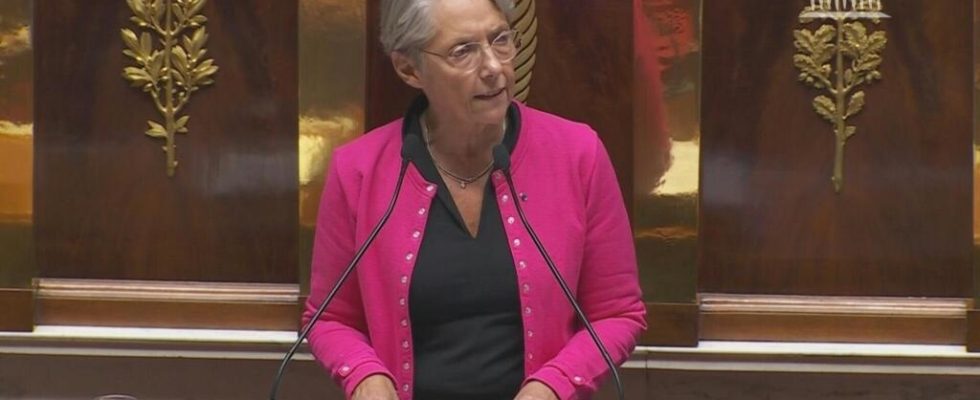Élisabeth Borne this Wednesday before the National Assembly took responsibility for her government on the public finance programming bill using, for the first time in the parliamentary season, 49.3.
2 mins
“ No group is ready to vote for this essential text for our country. This text has already been rejected at first reading. We need this law to program our public finances. We can’t take the slightest risk “, declared the Prime Minister, defending a text of “ responsibility », shortly before midnight, at the end of debates which started at 9:30 p.m. Article 49.3 of the Constitution allows the adoption of a text without a vote, but exposes the government to a motion of censure.
The left-wing Nupes alliance announced that it was filing a motion of censure against the government. “ This is the only way to defend yourself for the National Assembly » faced with the use of article 49.3, denounced the leader of the deputies of La France insoumise, Mathilde Panot, on behalf of her party as well as socialists, communists and ecologists. This text will result in “ social and ecological mistreatment that we cannot accept “, she added.
The public finance programming law sets the country’s budgetary trajectory for 2027. The text was revised last fall by the National Assembly and then amended by the Senate. This public finance programming law provides in particular for a public deficit of 2.7% of gross domestic product (GDP) in 2027 to bring it within the budgetary requirements of the European Union.
The government may also have to use article 49.3 to pass its finance bill (PLF) for 2024 and that of financing Social Security (PLFSS), presented Wednesday in the Council of Ministers and which will be examined from October in the National Assembly then in the Senate.
49.3, the best-known article of the Constitution
49.3 refers to article 49 paragraph 3 of the Constitution of the Fifth Republic, which allows “ Prime Minister, after deliberation of the Council of Ministers » to engage « the government’s responsibility before the National Assembly on the vote on a finance or social security financing bill “. The Prime Minister can also use this device for another bill but only once per parliamentary session, which limits its use. The project is then considered adopted, “ unless a motion of censure, filed within the following twenty-four hours, is voted on under the conditions provided for in the preceding paragraph “.
By drawing out 49.3, the government risks a motion of censure: deputies must submit it within 24 hours, signed by 58 of them. The text is then discussed in session within 48 hours. If the motion of censure fails to obtain an absolute majority, set at 289 votes, the government text is adopted without a vote. If the motion of censure is adopted, it leads to the resignation of the Prime Minister and his government. More than 100 motions of censure have been tabled since 1958, recalls Agence France Presse, but only one was successful, in 1962, bringing down the government of Georges Pompidou.
Read alsoFrance: the Council of Europe criticizes the contested article 49.3 of the Constitution
(With agencies)
